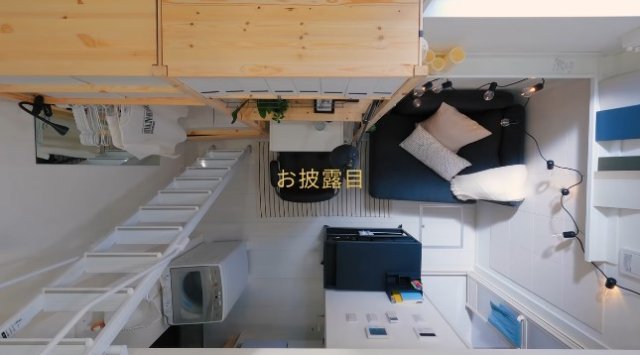(Source from IKEA Japan)
The Guardian, a British media outlet, reported on the 21st (local time), “There is a very small apartment in Japan that is only 9㎡ (about 2.7 pyeong),” adding, “The apartment is built so that you can cook while doing business in the bathroom.On the right side of the front door of the apartment, there is a shower booth where you can barely wipe your body. Next to the shower booth, there is a toilet with only a toilet. The kitchen is only 50cm away from the entrance to the bathroom.
Ultra-small apartments cost 70,000 yen ($600) per month, which is about 30,000 yen ($250) cheaper than the average rent in the region. Keisuke Nakama, chairman of the real estate developer Spillitus, who built the apartment, described the apartment as “built for young tenants in Japan.” Unlike the older generation, the younger generation does not have many items, Nakama said. “A very small apartment is an ideal residential space.” However, this reality is also concentrated in Korea as a residential culture around downtown office workers and major universities such as Seoul due to “Goshitel, Apatel.”The privacy of the next room and upstairs is almost an environment to give up, and the rent is about $100 higher than that of Japan (about $700-800)
At one time, it is the same that the space is too small with almost one bed in a vulnerable environment, and there are two types: individual toilets and communal structures. And because it is an officetel, a slightly larger structure than this is the same as an individual ultra-small apartment in Japan now, but the price is about $10,000 for Defajit and $1,000 for rent.
Local netizens who saw photos inside the apartment showed various reactions through various social networking services (SNS) such as Twitter. Some responded positively, saying it is a great help to those who are struggling financially, while most netizens criticized real estate developers, saying, “It is practically a prison” and “There should not be a kitchen in front of the toilet.” If Japan’s response is like this, Korea seems to accept it as an inevitable reality. In Korea and Japan, the residential environment, that is, real estate, and large cities are too expensive, so there seems to be no alternative to living in a cheap place and working or studying.
JENNIFER KIM
ASIA JOURNAL


